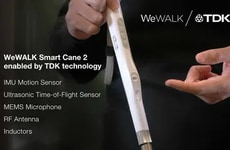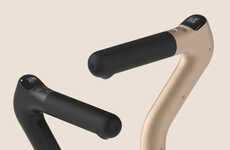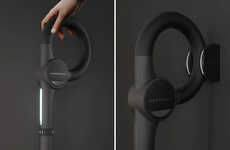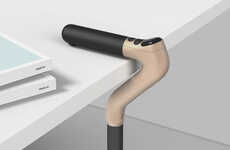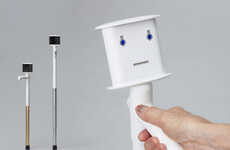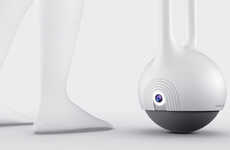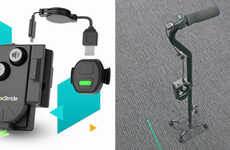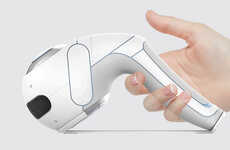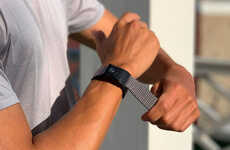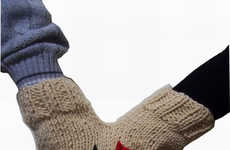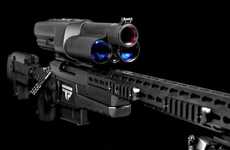
The Sonicane 2.0 Lets the Blind Guide Themselves
Michael Hines — January 12, 2012 — Lifestyle
References: coroflot & designbuzz
The Sonicane 2.0 is a tech-savvy walking stick designed by Soonjae Kwon. Kwon's cane is meant to give the blind more freedom in their travels and is equipped with GPS.
The Sonicane 2.0 gives feedback to the user in either braille or through sound. The cane's built-in GPS helps lead its user around the city and its vibrating nub helps direct the person which direction to head in next. The Sonicane 2.0 is designed to keep the blind safe at night with its built-in nightlight that alerts motorists and other pedestrians of the walker's presence. Designers are doing their best to ensure that the sightless aren't left behind during the rapid advancement of technology. It won't be soon before designs such as Kwon's are the norm rather than the exception.
The Sonicane 2.0 gives feedback to the user in either braille or through sound. The cane's built-in GPS helps lead its user around the city and its vibrating nub helps direct the person which direction to head in next. The Sonicane 2.0 is designed to keep the blind safe at night with its built-in nightlight that alerts motorists and other pedestrians of the walker's presence. Designers are doing their best to ensure that the sightless aren't left behind during the rapid advancement of technology. It won't be soon before designs such as Kwon's are the norm rather than the exception.
Trend Themes
1. Smart Walking Aids - The development of smart walking aids equipped with GPS and sensory feedback will improve the mobility and independence of visually-impaired individuals.
2. Assistive Technology - The use of assistive technology such as the Sonicane 2.0 highlights the potential for innovation in creating accessible products that cater to the needs of differently-abled individuals.
3. Inclusive Design - There is a growing trend towards inclusive design in the development of products, as designers recognize the importance of catering to diverse user needs and ensuring accessibility for all individuals.
Industry Implications
1. Healthcare Technology - The healthcare technology industry has significant potential to leverage smart technology and design principles in the development of assistive devices for individuals with different abilities.
2. Consumer Electronics - Consumer electronics companies could develop more accessible devices by incorporating sensory feedback and location-based services into their products.
3. Assistive Devices - The assistive device industry is poised for rapid growth as the global population ages and demand increases for technologies that enhance accessibility and mobility for individuals with varying needs.
1.9
Score
Popularity
Activity
Freshness

